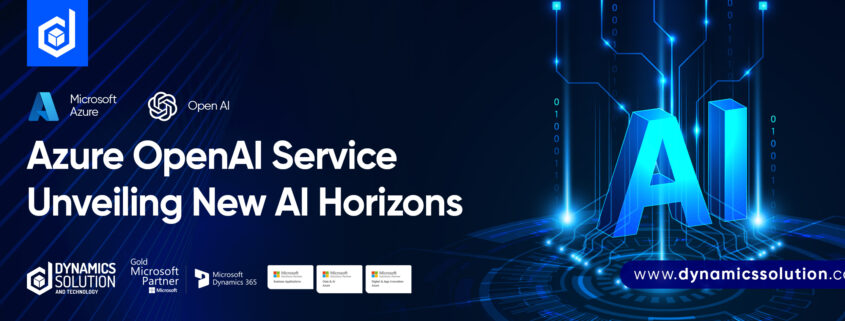Microsoft’s partnership with OpenAI is pivotal in expediting its goal of AI-driven digital transformations for businesses. Its CEO, Satya Nadella has made AI innovation the focal point of Microsoft’s journey into the new year, with countless possibilities being unearthed every month. Whether it is integrating generative AI into business users’ processes with Copilot or empowering developers to build on OpenAI’s open models through Azure AI Studio, both the giants’ partnerships have empowered Microsoft’s userbase with countless benefits of generative AI.
This blog focuses on one such fruit of this epic partnership, the Azure Open AI service, which combines the functionality of OpenAI’s Large Language Models (LLMs) and Azure’s robust security and development infrastructure together.
The Microsoft OpenAI Partnership
Microsoft and OpenAI have a long-standing partnership, dedicated to providing safe and accessible AI to business users and developers. Spanning across more than five years, this partnership has witnessed a multi-billion dollar investment from Microsoft and has played a crucial role in adding a for-profit arm to the originally non-profit OpenAI. This strategic partnership allows both giants to pursue their mission of advancing the benefits of safe and useful AI to everyone. As OpenAI innovates on generative AI algorithms and Microsoft innovates on the infrastructure train OpenAI models, a plethora of opportunities become available with each development in this partnership.
Furthermore, with Satya Nadella making a surprise entry mid Sam Altman’s speech at OpenAI’s first DevDay Conference, to highlight their priority that is “to build the best systems, so you can build the best models and deliver those to developers”, their partnership has exponentially enhanced the access of a OpenAI’s GPT and all its versions to the common AI developer.
Empowering AI Builders with Azure OpenAI Service
An empowering off-shoot of the Microsoft-OpenAI partnership is Azure Open AI service, which allows AI builders to innovate on OpenAI’s pioneering LLMs:
- GPt-3.5
- GPT-3.5 Turbo
- GPT-4
- GPT-4 Turbo
- Dalle-E 3
- Codex
- Whisper 3 and
Developers and AI builders can use the models and train them on their own data to leverage a multitude of use cases. Azure OpenAI Service provides enterprise-grade automation capabilities to users through an affordable package. Developers can finetune the OpenAI pre-train generative AI models with Microsoft Azure’s infrastructure of trust and security.
Build on Responsible AI
AI is generally viewed with suspicion due to its adverse effects related to data security, privacy and harmful use. These are one of the major hurdles for aspiring AI builders with limited resources to build safe-to-use AI solutions. While the organizational has a ton of innovation potential, integrating it with malicious AI can cause harm to the organizational reputation. Hence, Azure OpenAI Service provides access to OpenAI’s LLMs and other generative AI models under the provision of its Responsible AI principles:
- Fairness: AI should treat everyone fairly.
- Reliability and Safety: AI should perform in a reliable and safe manner.
- Privacy and Security: AI should protect data and respect privacy.
- Inclusiveness: AI should empower everyone regardless of their caste, race, nationality, and gender.
- Transparency: AI should be able to explain its actions and thought processes.
- Accountability: People are accountable for the way AI behaves.
Furthermore, Azure OpenAI also propagates data security as a core principle of cloud-computing:
- Data used to train or fine-tune models belongs to the user.
- It is not used to train the foundational AI models.
- It is protected by strict enterprise compliance and security protocols.
Productivity-Driven Use Cases
Azure Open AI Studio allows developers to use the LLMs or other generative AI models as is or after finetuning them, for multiple use cases.
- AI Chat-Bots: Customer service bots, Employee self-help bot etc.
- Data Grounding: Data Analytics for business insights.
- Summarization: Insights from unstructured data, summarizing meetings, long reports etc.
- Writing Assistance: Content ideation, editing, and generation
- Knowledge Mining: Domain specific research, trend analysis, cross-functional insights.
- Efficient Software Development: Code generation, code completion, documenting and debugging.
Cost-Efficiency and Scalability as an Added Benefit
AI builders and developers often face budget constraints and lack of infrastructure as limitations in innovating with AI models. Hence, they find themselves incapable of innovating beyond their means. Azure Open AI studio allows developers to utilize their models at a lower price. This allows small organizations to leverage AI innovation to AI-power their business processes as well. This enhanced access to Open Ai’s powerful language models yields endless opportunities for automation and innovation for developers.
Furthermore, Azure is known for its impeccable scalability of resources. Azure OpenAI Service is capable of handling small aur large scale applications, as per the development needs, without performance degradation.
Dynamics Solution and Technology Accelerating the AI Revolution
With AI empowering businesses from every industry and on every front, making generative AI accessible for aspiring AI builders has opened many avenues for AI innovation. It has extended access to businesses despite their size to try their hand at AI innovation which has resulted in improved processes and decreases costs.
Dynamics Solution and Technology, as a Microsoft-vetted Solutions partner, has been empowering businesses with AI-led digital transformation all around the Gulf, MENA, and European regions. Our machine learning experts and technical consultants can revolutionize your business processes by integrating Azure OpenAI services into your Dynamics 365 and Azure applications. Begin AI-powering your business processes and contact us today for a personalized demo.







